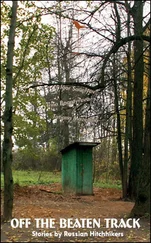Winter could hear paper being turned over at the other end of the line.
“That’s about all I can come up with on the stuttering front,” said Alinder.
“What was the driver’s name?” Winter asked.
More rustling of paper.
“His name is Mats Jerner,” said Alinder.
Winter felt his hair stand on end, a draft of wind blew through the room he was standing in.
“Could you say that again?”
“His name? Mats Jerner. With a J.”
“He crops up in another case,” said Winter. “I interrogated him yesterday. Today.”
“You don’t say.”
“What route was it he drives?” Winter asked.
“Hang on a minute.” Alinder looked it up and reported: “Number three.”
“What direction was he coming from when the accident happened?”
“Er, from the west. Masthugget.”
“OK.”
“There’s another thing,” said Alinder.
“What?”
“It makes the whole thing even odder.”
“Well?”
“I don’t have any notes about it or anything like that. I didn’t remember it tonight in the car when I called you, or as we were driving to the station. It came to me when I was reading the reports from the accident and the interviews.”
He remembered it like this:
He had been the first one to enter the streetcar after he’d managed to get the driver to open the doors. He’d looked around: The man at the front with the blood pouring out of him, a woman weeping and making high-pitched wailing noises, some children huddled together on a seat with a man who was still holding his arm around them as protection against the crash that had already taken place. And two young men, one white and one black.
The driver had just sat there, staring straight ahead. Then he’d slowly turned his head to look at Alinder. He’d seemed uninjured and calm. He’d lifted up his briefcase and placed it on his knee. Alinder hadn’t noticed anything special in the driver’s cab, but then again, he didn’t know what they normally look like.
There had been something hanging from a peg behind the driver. Alinder had registered that it was a toy animal, a small one, a little bird perhaps, green in color that didn’t stand out from the wall it was hanging against. It had a beak. Maybe there was a bit of red there as well. It had looked like a sort of ornament.
The driver had swiveled around in his seat, raised his left hand, unhooked whatever it was, and put it into his briefcase. Aha, Alinder had thought. A mascot. We all need some kind of company. Or protection, perhaps. To ward off bad luck. But that bundle of feathers hadn’t done much to help this poor bastard, he’d thought.
A little bird, green in color.
JERNER HAD BROUGHT A BROWN BRIEFCASE WITH HIM THAT looked to be about as old as he was. Winter had seen it. Jerner had it tucked under his arm, Winter had seen it leaning against the visitor’s chair when they stood up to leave.
Oh my God.
Winter felt he couldn’t really control the hand still holding the damn receiver, which had almost become a part of him over the last few hours.
Was that a car he could hear outside? Had traffic started moving? Was it that early, or late?
Stay calm now, Winter.
There was one thing he had to do, without delay. He dialed the number for Police Operations Center.
“Hello Peder, it’s Winter again. Send a car immediately to this address.”
He listened to what his colleague had to say.
“It’s to the home of somebody called Mats Jerner,” he said. “No, I don’t know exactly which apartment, I’ve never been there. But send the nearest team there as quickly as possible. What? No, wait outside. Outside the door to the apartment, on the landing, yes. They are to wait for me. I’m on my way.” He needed to clear his throat. “Send a locksmith there as well. Tell him to step on it.”
What was the number three route? Westward from the city center? Eastward, southward? Maybe Jerner didn’t drive that route exclusively. Did he remember correctly that they had changed the number three route recently? It had stopped passing by Winter’s flat, didn’t stop at Vasaplatsen anymore. Then it had come back again. I seem to remember noticing that.
He put on a sweater, stepped into his boots, wriggled into his leather jacket, and grabbed the door handle just as the bell rang from the other side.
He opened it and found Ringmar standing there.
“Are you on your way out, Erik?”
“Where’s your car?”
“Just outside your front door.”
“Good. I can drive,” said Winter. “Come on, I’ll explain on the way.”
They took the elevator. Ringmar had left the sliding doors open so that it didn’t automatically return to the ground floor.
“It’s Smedsberg,” said Ringmar as they rattled down.
“What?”
“Old man Smedsberg. Georg Smedsberg. He was the one who attacked the students.”
“Where have you been, Bertil?”
Ringmar’s face was blue in the red light of the elevator, which tended to highlight his features. There was fire in his eyes. Winter detected a smell coming from Ringmar that he’d never noticed before.
“His son knew the whole time, of course,” said Ringmar. “Or almost the whole time.”
“Have you been out there, Bertil?” Winter looked askance at Ringmar, who was staring straight ahead. “Did you go there on your own?” Ringmar continued to stare straight ahead. “For Christ’s sake, Bertil. I’ve been trying to reach you.”
Ringmar nodded and continued to tell his story as if he hadn’t heard Winter’s question.
“They’ve all been out there. All the guys. I have half a kilo of dirt that will prove it, though we don’t even need technical evidence in this case.”
“Did he confess?” Winter asked.
Ringmar didn’t answer the question, but continued telling his story.
“I went into the house just as he was about to do God only knows what to the boy. His son. Then it was just a matter of listening. He wanted to talk. He’d been waiting for us, he said.”
They were down. Winter opened the door and Ringmar accompanied him, almost tentatively, still absorbed in his story. Their footsteps echoed in the stairwell. Ringmar’s voice echoed: “Gustav knew his father wanted to punish the others-or warn them, rather, give them a serious warning that they were not to say anything, that he’d already done it, and would do it again, so Gustav came to us with his story about branding irons.”
They were standing on the pavement. Ringmar’s unmarked police car felt warm when Winter touched the hood.
“I’ll drive,” he said. “Give me the keys.”
“But it wasn’t really a story, was it?” said Ringmar, as they sat down in the car. “Branding irons like that did exist, and we checked up. And came to Carlström. And from him to old man Smedsberg. Or was it vice versa?” Ringmar stroked his nose and took a deep breath. “The boy wanted us to get to his father.” Ringmar looked at Winter. “He didn’t dare say anything himself. He was too scared. He knew he’d never be able to get away from the old man.”
“Did he tell you that?” asked Winter, running a red light in the deserted Allé. The traffic lights weren’t working.
“He came home with me in the car,” said Ringmar.
“Good Lord. Where is he now?”
“In his room.”
“Are you sure?”
Ringmar nodded.
“Do you believe it all?”
“Yes.” Ringmar turned to look at Winter. “You weren’t there, Erik. If you had been, you’d have understood.”
“Where’s old man Smedsberg?”
“With our colleagues in Skövde by now,” said Ringmar, checking his watch. “Christ, is that the time?” He looked at Winter again. “They were out there, Kaite and the other guys, and saw the old man attack his son. I’m not clear about all the details, but they surprised the bastard. The boy, Gustav, must have been unable to move. Paralyzed. His father laid into him.” Ringmar rubbed his face. “It must have been going on for ages.” He rubbed his face again, making a scraping noise against the stubble on this chin. “Destroyed, of course. Ruined.” He rubbed, and rubbed again. “There’s nothing to see on the surface, of course, but it’s there inside. Ruined by his father. It came-”
Читать дальше












